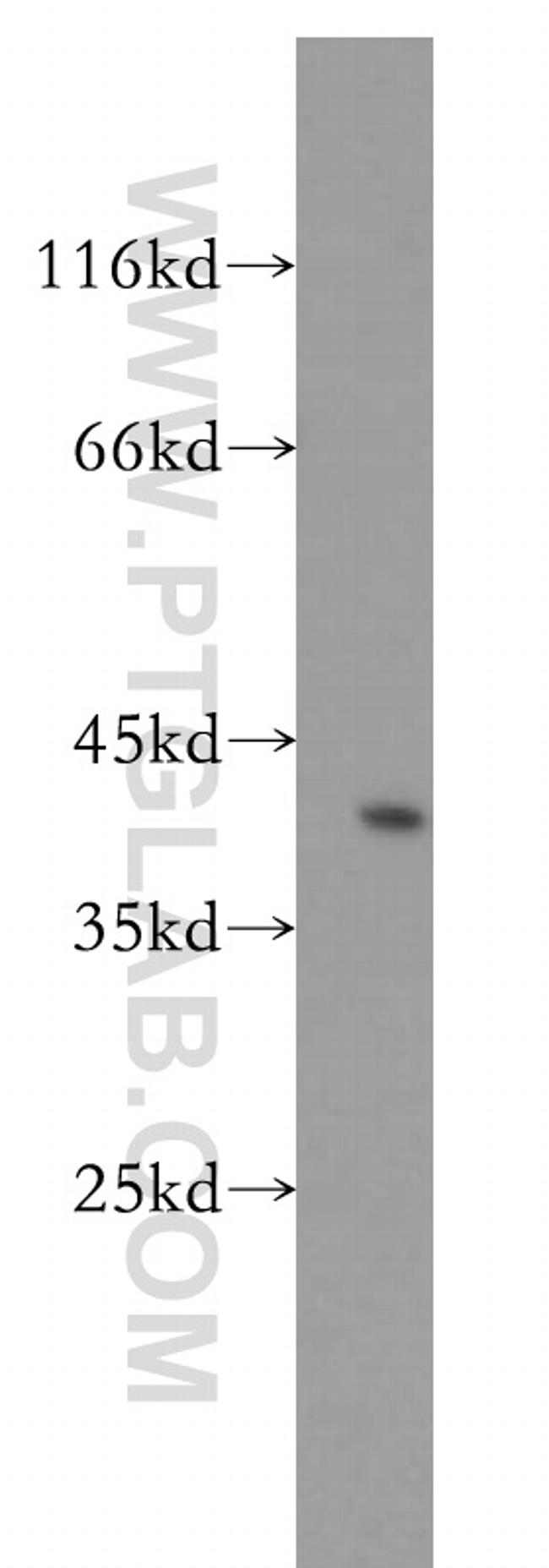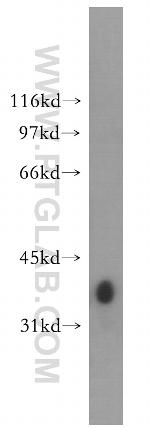Search Thermo Fisher Scientific
Product Details
12836-1-AP
Species Reactivity
Published species
Host/Isotype
Class
Type
Immunogen
Conjugate
Form
Concentration
Purification
Storage buffer
Contains
Storage conditions
Shipping conditions
Product Specific Information
Immunogen sequence: DQAFVTLTT NDAYAKGALV LGSSLKQHRT TRRLVVLATP QVSDSMRKVL ETVFDEVIMV DVLDSGDSAH LTLMKRPELG VTLTKLHCWS LTQYSKCVFM DADTLVLANI DDLFDREELS AAPDPGWPDC FNSGVFVYQP SVETYNQLLH LASEQGSFDG GDQGILNTFF SSWATTDIRK HLPFIYNLSS ISIYSYLPAF KVFGASAKVV HFLGRVKPWN YTYDPKTKSV KSEAHDPNMT HPEFLILWWN IFTTNVLPLL QQFGLVKDTC SYVNVEDVSG AISHLSLGEI PAMAQPFVSS EERKERWEQG QADYMGADSF DNIKRKLDTY LQ (1-331 aa encoded by BC031096)
Target Information
This gene encodes a member of the glycogenin family. Glycogenin is a glycosyltransferase that catalyzes the formation of a short glucose polymer from uridine diphosphate glucose in an autoglucosylation reaction. This reaction is followed by elongation and branching of the polymer, catalyzed by glycogen synthase and branching enzyme, to form glycogen. This gene is expressed in muscle and other tissues. Mutations in this gene result in glycogen storage disease XV. This gene has pseudogenes on chromosomes 1, 8 and 13 respectively. Alternatively spliced transcript variants encoding different isoforms have been identified.
For Research Use Only. Not for use in diagnostic procedures. Not for resale without express authorization.
Bioinformatics
Protein Aliases: glycogenin 1; glycogenin glucosyltransferase; Glycogenin-1; GN-1; GN1
Gene Aliases: AU017667; GSD15; GYG; GYG1
UniProt ID: (Human) P46976, (Mouse) Q9R062, (Rat) O08730
Entrez Gene ID: (Human) 2992, (Mouse) 27357, (Rat) 81675

Performance Guarantee
If an Invitrogen™ antibody doesn't perform as described on our website or datasheet,we'll replace the product at no cost to you, or provide you with a credit for a future purchase.*
Learn more
We're here to help
Get expert recommendations for common problems or connect directly with an on staff expert for technical assistance related to applications, equipment and general product use.
Contact tech support


